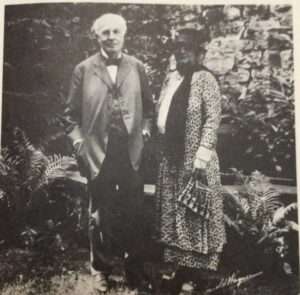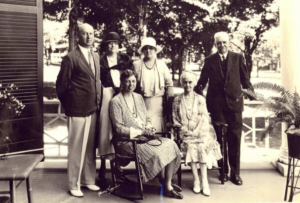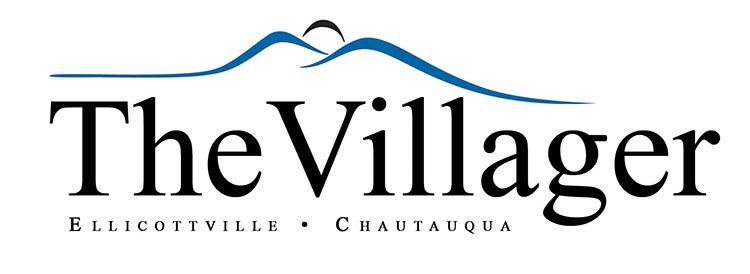By Steve Rawlings
Part 2- Impact to the Region, and the World
Chautauqua’s early years coincided with the rise of the American industrial era, attracting influential industrialists and innovators. The convergence of religious ideals and business acumen fostered a unique environment where industrialists, bankers, and investors could exchange ideas and strategies, fueling economic growth in the Great Lakes region. This is one of the reasons my grandfather was attracted to attend Chautauqua. Though deeply religious in his upbringing, Chautauqua was the ideal place to have open dialogue about evolving business and economic ideas in the region.
The Heinz Family of Pittsburg were early attendees and benefactors. Thomas Edison, a frequent visitor, found inspiration within the intellectually stimulating environment, and met his wife Mina, daughter of founder Lewis Miller. The couple would later inherit the Miller Cottage, also known as the Edison Cottage which is now a National Historic Landmark. The Massey family of the agricultural machine innovators Massey-Furguson, dedicated the magnificent 5,640 pipe Massey organ in 1907 which is still played every day throughout the season by organist Josh Stafford.

Cultural and Intellectual Expansion
As Chautauqua grew beyond its religious roots, it drew a plethora of ground-breakers in their fields as knowledge expanded throughout the world. The Chautauqua Lecture Series and Interfaith Lecture Series attract a diverse array of speakers who have shaped public discourse. Over the years, Chautauqua has hosted pioneering figures who have had a profound impact on society and culture:
Helen Keller: Despite being blind and deaf, Keller became an influential advocate for people with disabilities, using her platform at Chautauqua to promote inclusivity and accessibility long before DE&I was even discussed, laying the groundwork for Chautauqua to become a beacon for Diversity, Equity and Inclusion.
Margaret Mead: As a groundbreaking anthropologist, Mead’s research on cultural diversity and human development brought new perspectives to Chautauqua audiences, fostering a deeper understanding of different societies.

Franklin D. Roosevelt: As a frequent speaker, FDR used Chautauqua as a platform to discuss his New Deal policies and vision for America, inspiring hope and action during the Great Depression. In 1936, near the end of the 62-season, FDR delivered a powerful message which would later be known as his “I Hate War” speech in the Amphitheater. FDR chose Chautauqua specifically to position the United States as an exemplar of peace and to implore the world leaders of the day and its citizens, to embrace our common humanity.
Eleanor Roosevelt: Known for her advocacy of human rights and social justice, Eleanor Roosevelt’s talks at Chautauqua emphasized the importance of civic engagement and equality and voting rights for women.
Concluding the 159th year: Wynton Marsalis and The Lincoln Project
As Chautauqua approaches the culmination of its 150th anniversary celebrations, it is fitting to highlight the contributions of Wynton Marsalis and The Lincoln Project. Marsalis, a renowned jazz musician and educator, has been a powerful advocate for using jazz as a metaphor for democracy and social cohesion with its emphasis on improvisation, collaboration, and individual expression within a collective framework.
Marsalis’ involvement with Chautauqua and The Lincoln Project has brought a fresh perspective to the Institution’s programming. By drawing parallels between jazz and modern politics, Marsalis has encouraged audiences to view democracy as an evolving art form that requires constant participation, creativity, and respect for diverse voices. His work with The Lincoln Project, which aims to foster a deeper understanding of American democracy through the arts, aligns perfectly with Chautauqua’s mission of promoting lifelong learning and civic engagement.
Looking Ahead: The Future of Chautauqua
As part of its 150th-anniversary celebrations, Chautauqua has launched the “Boundless” capital campaign, aiming to raise $150 million to support its mission of lifelong learning and cultural enrichment. This campaign includes initiatives to further integrate business and innovation into the institution’s programming, ensuring that Chautauqua remains a vital resource for future generations. The funds will be used for capital projects, scholarships, and new program development, reinforcing Chautauqua’s role as a leader in education and cultural engagement.
I could write on and on. But words cannot express how dear Chautauqua is to me. Childhood summer “Chautauqua friends” have become lifelong friends and our stories of this place in our lives would fill volumes, and still, not give a true description of this magical place. The best way to understand Chautauqua is to come to Chautauqua. This community of knowledge seekers, artists, thinkers and believers in humanity welcome anyone to join them. There is no place like it on earth.
